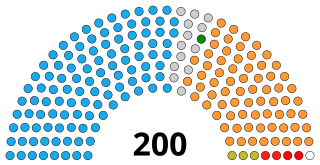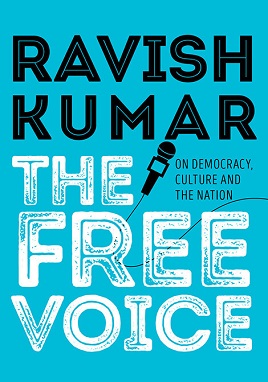
The Constitution of India is the supreme law of India. The document lays down the framework that demarcates fundamental political code, structure, procedures, powers, and duties of government institutions and sets out fundamental rights, directive principles, and the duties of citizens, based on the proposal suggested by M.N. Roy. It is the longest written national constitution in the world.

Tamanna Bhatia, is an Indian actress who primarily works in Telugu, Tamil and Hindi cinema. In a career spanning nearly two decades, Tamannaah has appeared in over eighty films. She has won the Kalaimamani Award, the SIIMA Award and has had several Filmfare Awards South nominations.

Dhananjaya Yeshwant Chandrachud is an Indian jurist, who is the 50th and current chief justice of India serving since November 2022. He was appointed a judge of the Supreme Court of India in May 2016. He has also previously served as the chief justice of the Allahabad High Court from 2013 to 2016 and as a judge of the Bombay High Court from 2000 to 2013. He is also a former executive chairperson (ex officio) of the National Legal Services Authority.
The Constitution of India provides the right to freedom, given in article 19 with the view of guaranteeing individual rights that were considered vital by the framers of the constitution. The right to freedom in Article 19 guarantees the freedom of speech and expression, as one of its six freedoms.

Unlawful Activities (Prevention) Act is an Indian law aimed at prevention of unlawful activities associations in India. Its main objective was to make powers available for dealing with activities directed against the integrity and sovereignty of India. The most recent amendment of the law, the Unlawful Activities (Prevention) Amendment Act, 2019 has made it possible for the Union Government to designate individuals as terrorists without following any formal judicial process. UAPA is also known as the "Anti-terror law".
The Government of Delhi, officially the Government of the National Capital Territory of Delhi (GNCTD) is the governing body of the Union Territory of Delhi, whose urban area is the seat of the Government of India. It also governs the city or local governments in the area as per the 74th Constitutional Amendment Act.

The Rajasthan Legislative Assembly or the Rajasthan Vidhan Sabha is the unicameral legislature of the Indian state of Rajasthan.

Uday Umesh Lalit is an Indian lawyer and former Supreme Court Judge, who served as the 49th Chief Justice of India. Previously, he has served as a judge of Supreme Court of India. Prior to his elevation as a judge, he practised as a senior counsel at the Supreme Court. Justice Lalit is one of the six senior counsels who have been directly elevated to the Supreme Court. He is currently ‘Distinguished Visiting Professor’ at Ashank Desai Centre for Policy Studies, Indian Institute of Technology, Bombay. and Distinguished Visiting Professor at West Bengal National University of Juridical Sciences

The Wire is an Indian nonprofit news and opinion website which publishes in English, Hindi, Marathi, and Urdu. It was founded in 2015 by Siddharth Varadarajan, Sidharth Bhatia, and M. K. Venu. The publication's reporters have won several national and international awards, including three Ramnath Goenka Excellence in Journalism Awards and the CPJ International Press Freedom Award. It counts among the news outlets that are independent of the Indian government, and has been subject to several defamation suits by businessmen and politicians. In 2022, it fired one of its reporters who was alleged to have fabricated several news stories.
Lalai Singh Yadav (1911-1993) was a policeman in paramilitary who became a social justice activist and play writer. He wrote plays like Shambhuk Vadh. He translated Periyar E. V. Ramasamy's The Key To Understanding True Ramayan from Tamil to Hindi as Sachi Ramayan Ki Chabi. In 1962, he wrote a book entitled Baman Vadi Rajya Mein Shoshito Par Rajnaitik Dakaiti. He fought a free speech case against the UP Government on his book ban.
Kaleeswaram Raj is an Indian lawyer practising in the Supreme Court of India and the High Court of Kerala. He has successfully argued for decriminalisation of the offence of adultery in India.
Section 124A of the Indian Penal Code lays down the punishment for sedition. The Indian Penal Code was enacted in 1860, under the British Raj. Section 124A forms part of Chapter VI of the Code which deals with offences against the state. Chapter VI comprises sections from 121 to 130, wherein section 121A and 124A were introduced in 1870. The then British government of India feared that the Khilafat movement on the Indian subcontinent would wage a war against them. Particularly after the successful suppression of Wahabi/Waliullah Movement, the need was felt for such a law. Throughout the Raj, the section was used to suppress political dissent in favour of independence, including Lokmanya Tilak and Mahatma Gandhi, both of whom were found guilty and imprisoned.

The Jammu and Kashmir Reorganisation Act, 2019 is an act of the parliament of India containing provisions to reconstitute the Indian-administered state of Jammu and Kashmir into two Indian-administered union territories (UTs) called Jammu and Kashmir, and Ladakh, and becoming effective on 31 October 2019. A bill for the act was introduced by the Minister of Home Affairs, Amit Shah, in the Rajya Sabha on 5 August 2019 and was passed on the same day. It was then passed by the Lok Sabha on 6 August 2019 and it received the president's assent on 9 August 2019.
The Shakti Bhatt Prize is a literary award established in 2007 in memory of Indian publisher, Shakti Bhatt. Between 2008 and 2019, it was awarded for first books published in India by an author of any age in the genres of poetry, fiction, creative non-fiction and drama. From 2020 onward, the Prize has been awarded in recognition of a writer's body of work, instead of a first book.
Events in the year 2021 in India
Gopal Guru is an Indian political scientist. He is the editor of the journal Economic and Political Weekly. He is a retired professor in political science at Centre for Political Studies, Jawaharlal Nehru University. He was a visiting professor at Columbia University, Oxford University and University of Pennsylvania, Philadelphia. Earlier, he taught at the University of Delhi and the University of Pune.

The Free Voice: On Democracy, Culture And The Nation is non-fiction book written by Ramon Magsaysay Award-winning journalist Ravish Kumar on India's democracy and its backsliding under Prime Minister Narendra Modi..

Saiyed Zegham Murtaza an Indian columnist and blogger. He is the author of Policenama- Jahan Murde bhi Gawahi dete hain, a book published by the Rajpal and Sons. Also, he has translated the Hindi version of Gautam Bhatia's book "Offend, Shock, or Disturb: Free Speech under the Indian Constitution" for Oxford University Press. He has scripted and produced many documentaries. Also, he is the founder of a media production company APZ Media Ventures Private Limited.
Diwali in Muzaffarnagar is a book by Tanuj Solanki which was published on January 25, 2018 by HarperCollins.

J. Sai Deepak is an Indian lawyer and author of the India / Bharat tetralogy. As a counsel, he practices before the Supreme Court of India and the High Court of Delhi.









